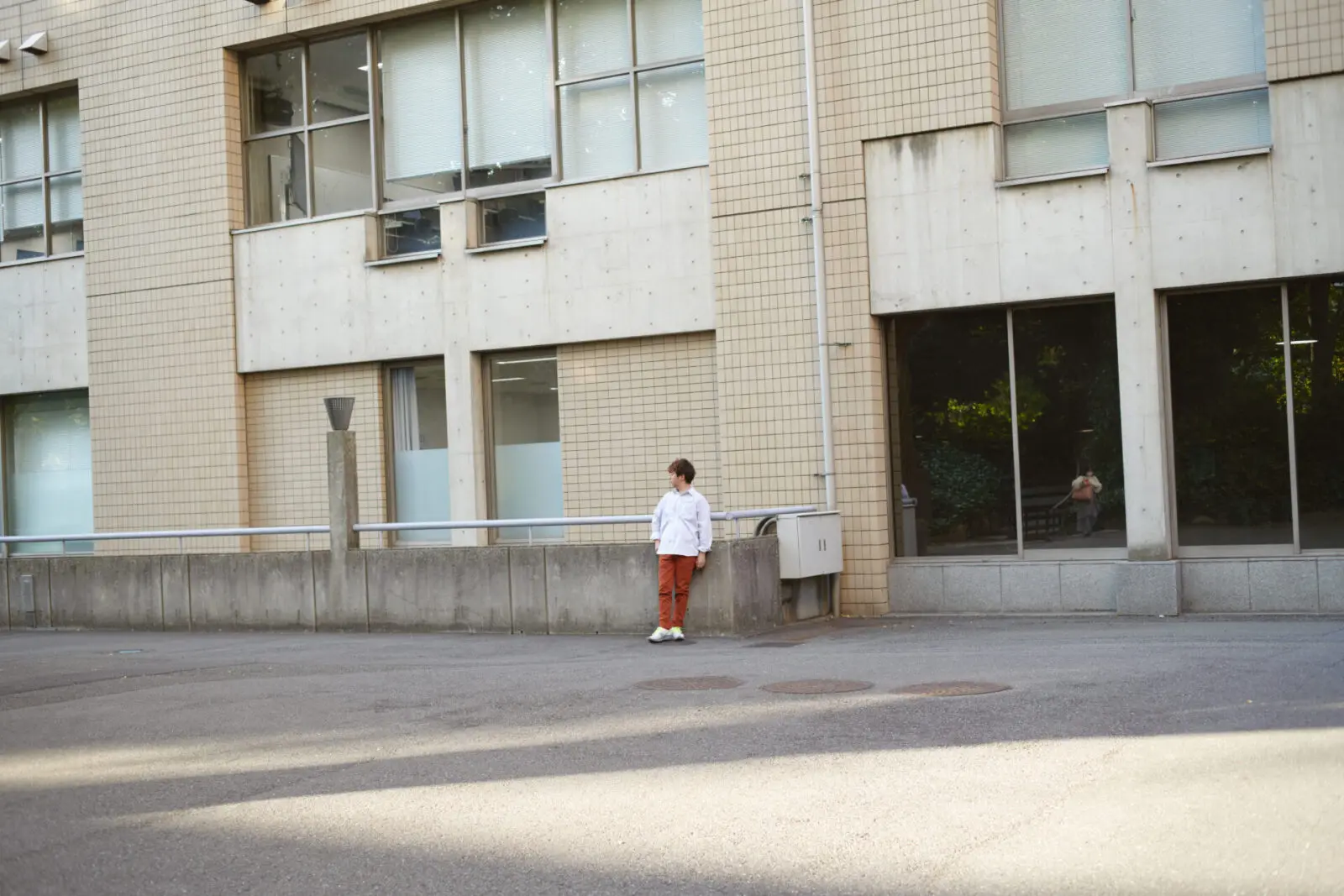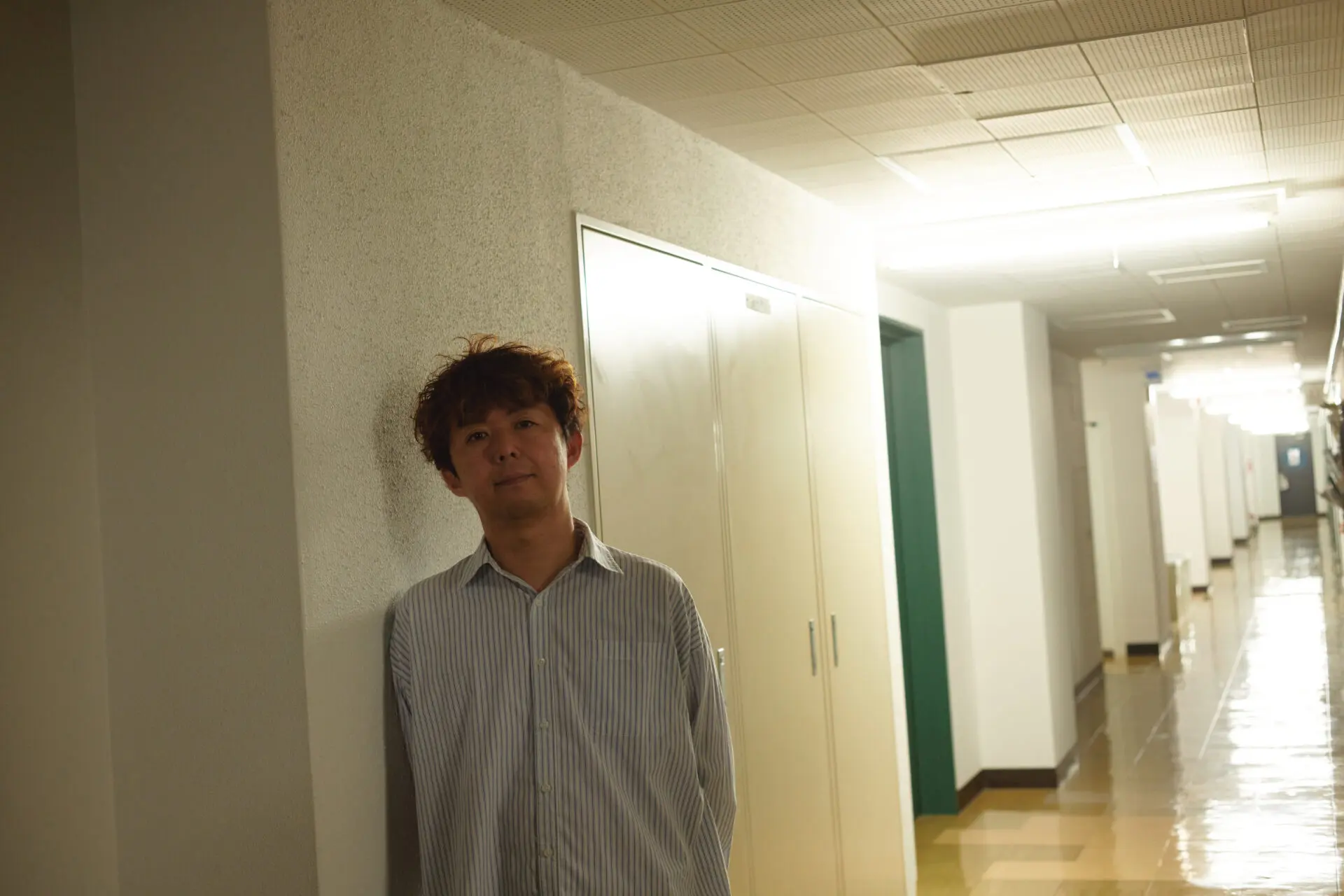Whether we enjoy making a cup of tea, brewing coffee, or smoking a cigarette, the nature of our shikohin experiences vary. However, no matter the experience they are all special moments in time.
To elaborate further, our lives are all inextricably linked to time.
The book Made Out of Time: An Invitation to Bergson’s Philosophy of Time (世界は時間でできている──ベルクソン時間哲学入門) published Seidosha in July 2022, explores the relationship between our “mind” and “time” through Henri Bergson’s (a French philosopher of the late 19th to early 20th century) philosophy of time.
The author of the book is Yasushi Hirai, a professor in the Faculty of Letters at Keio University who specializes in the philosophy of the mind and time, the metaphysics of memory and modern philosophy with a focus on Henri Bergson and Gottfried Wilhelm Leibniz.
We visited Hirai to discuss what significance the time we spend enjoying shikohin has on our mind and spirit. In Part 1 of this article, we explored the philosophical question of the fundamental meaning of time.
We experience time that we spend enjoying a cup of tea or coffee differently from the time we spend at work.
French philosopher Henri Bergson (19th~20th century) explored these philosophical questions related to our mind and time.
In Part 1 Hirai explained how Bergson introduced innovative ideas such as the multiple time scale, aspect of time, and the tension and relaxation of time, that drastically changed the way time is viewed in philosophy.
See Part 1 of this article:Time is not on a singular line. Researcher of Bergson Philosophy, Yasushi Hirai on how to free oneself from tamed time
How do we understand the moments of time that we spend enjoying shikohin?
We will continue our exploration of time based on Bergson’s philosophy from Part 1 and discuss the connections between our mind and time, the importance of keeping time “open” and the significance of the time we spend enjoying shikohin in Part 2.
(聞き手・文:鷲尾諒太郎 写真:今井駿介 編集:小池真幸)
Now is the time to reclaim open time
──In Part 1 we discussed the fundamental question of what time is.What made you interested in exploring these questions on time in the first place?
Looking back, I think that I first began exploring the idea that time is what makes up a person while I was preparing for the university entrance exams after high school.
After I got into Musashino Art University, I majored in oil painting and later became interested in philosophy so I transferred to Tokyo Metropolitan University to really focus on academics. However, in doing so I lost another year preparing for that school’s entrance exam.
While preparing for entrance exams requires you to really study, you are not bound to a schedule like you would be if you were in school taking classes. I did not have many plans other than to study, so much of the 24 hours in my day was time on my own.
During this time I was always questioning how I should spend my time.
I read books that interested me and immersed myself in other interests. I felt that this time on my own, which was not dictated by anyone else, would create the foundation which would support me later in life.
I first learned about Bergson after I entered Tokyo Metropolitan University.
Bergson was a philosopher who explored a wide range of concepts other than time, but I feel that my strong interest in this theme is rooted in my experience of having such time on my own while preparing for the entrance exams.

──What aspects of the time you spent during those years do you feel became the foundation of who you are today?
I think it was the fact that I spent a lot of open time.
I refer to time that is spent without anything constructive or profitable as “open time.” Contrarily, time that is spent achieving a specific purpose is “closed time.”
In order to survive, we must all take various actions. In order to pass an exam we must study, and in order to satisfy hunger we must eat.
When we act to achieve some purpose, we prioritize constructiveness and efficiency.
Learning how to avoid wasting resources is a survival skill that we have attained as part of our biological evolution. As humans, or more specifically, as a living organism we have an innate quality to do so.
However, Bergson argues that one of humankind’s characteristics as a living organism is that we are “open to being wasteful.”
When humans act without regard to constructiveness or future benefit and savor the time in the moment, we are experiencing “open time.”
And although this may sound contradictory, I believe that spending “open time” has significant meaning to those people who spend most of their time “closed.”
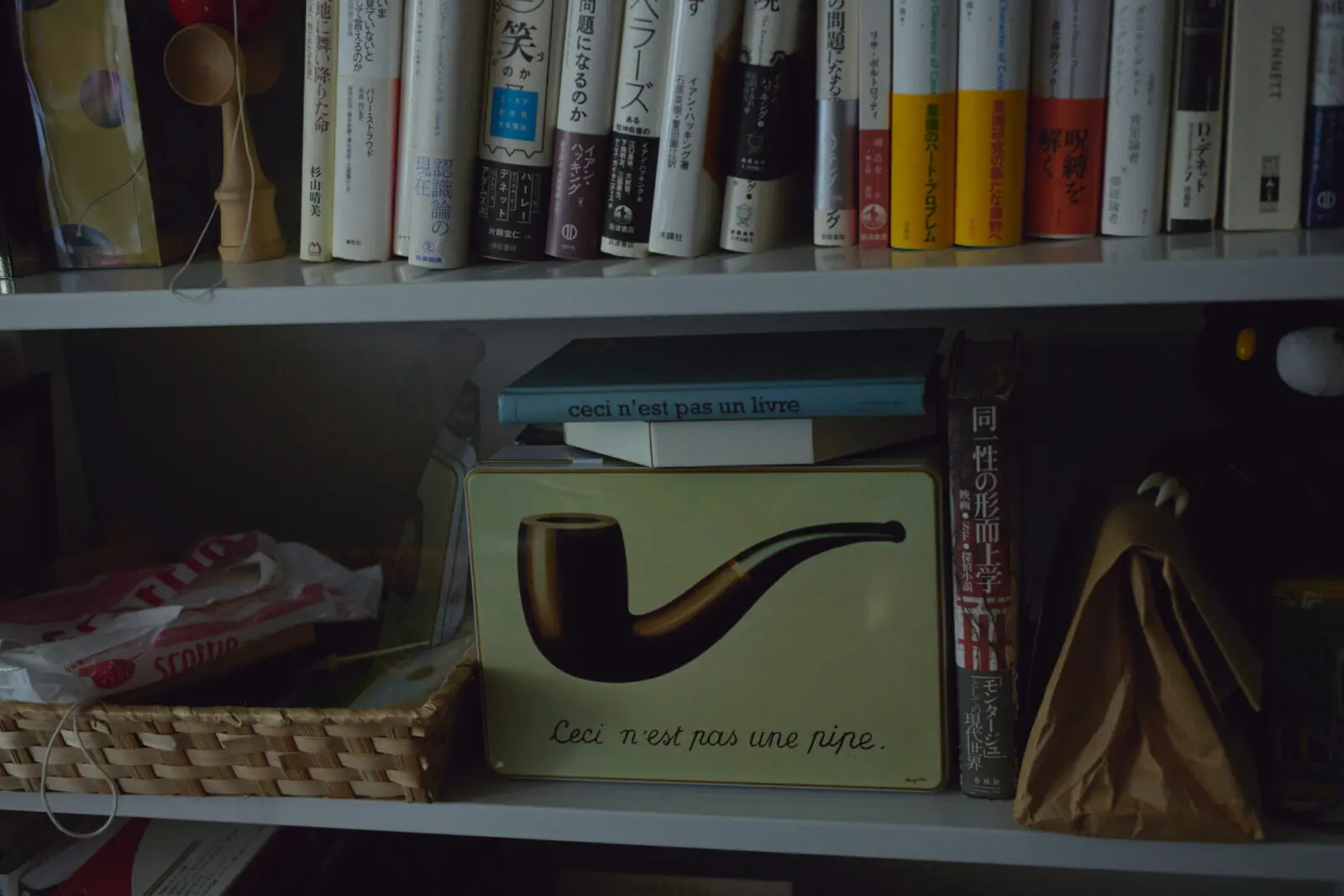
──As the trending words like “time performance” (maximized efficiency in return for time spent) signifies, it seems that we are prioritizing constructiveness and efficiency even more now in our modern world and the amount of time we spend “closed” is increasing.
I cannot say for sure because I have not conducted any academic studies on this matter, but one factor may be the changes in media that surrounds us. The tendency of the media to “hack our curiosity” may especially be a key factor.
We have been exposed to various forms of media, from the radio, television and the internet. The spontaneity and immediacy of these media has contributed to the rapid transmission of information and now it has become an indispensable part of our lives.
However, the immediacy and speed of information also leads us to fragmentate our time. This inhibits us from thinking of time on a larger scale. Furthermore, recent media and advertising takes advantage of human cognitive tendencies to take our time away and make profits.
Much of the information from such channels is not really important. However, human beings are curious beings and when we are exposed to various information, our minds get drawn to them and we begin to think that they are important.
Of course, having curiosity and gathering various information itself is not a bad thing. However, if one is always exposed to information from a media source, it takes away time that is needed to really address a specific issue.
We should not have to constantly be thinking about something.
For example, even in the time we spend in a daze on a train, we are in fact loosely thinking about something. This kind of “mind wandering” may seem futile or wasteful at first glance, but research shows that it is strongly connected to creativity.
However, if we are using such time on the train to look at X or Instagram, our attention is diverted and we lose ideas and insights that we may have otherwise unconsciously cultivated or accumulated.
I myself have this tendency and I am sure many people are becoming more aware of this phenomenon.
The laws of physics cannot be applied to the human mind
── It seems to me that the “open” or “closed” state of time is an expression that describes the state of our mind.
Bergson’s approach uses time to address and understand the human mind.
Up to this point we have talked about the tools needed to think about our minds. Moving on, let’s talk about how time relates to the freedom of our minds.
We talked about how time is not on a singular line in our lives (in Part 1), but rather that we live in an inexhaustible expanse of time that has multiple layers and diverse scales.
It is the very way that time exists that shows us the expansion and depth of our minds.

This has significant meaning for the important philosophical topic of “freedom” and more specifically, “determinism.”
Thanks to the advancements in modern science, we now know that atoms and molecules move only according to the laws of physics. This means that if humans were made up of atoms and molecules, we should also move only according to the laws of physics.
In other words, the argument today is that there is no such thing as individual free will and that our thoughts and actions are determined by physical things such as electrical signals in the brain and genetic sequences.
However, this argument is also based on the premise that time exists on a singular line. Such concepts on time are being blindly accepted and argued under deterministic terms, but as I have said, the time in which we actually live is not so simple.
──So if we update the way we understand time, we can overturn various assumptions of other arguments?
That’s right. If we were to metaphorically describe “determinism” according to the laws of physics, it would be like dominoes.
Let’s say dominoes are lined up in a row. When the first domino is knocked over the other dominoes will fall one after another as time passes. You would be able to calculate how many minutes it will take the dominos to fall through simple math, and that answer will be determined the moment the first domino falls.

Indeed this calculation is true in the physical world where time flows in a singular way, but these simple laws cannot be applied to the human mind.
This is because the human mind has uncompleted aspects of time, and complex interactions such as interpenetration and postdiction, which I explained (in Part 1).
You can look at my book for more specialized literature on this topic, but to put it in simple terms, past events are not made to determine the present like it does with dominos.
This complexity that we live with is what it means to have a mind and it is impossible to force that complexity into a singular line.
I find that Bergson’s most innovative and interesting work is his way of recapturing time and developing an argument about our minds and freedom.
The significance of the rituality of shikohin
──You said that time and mind are deeply connected. Based on what we discussed so far, what kind of significance do you think the time we spend enjoying shikohin has on our minds?
In order to think about this question, it is important to think about rituality, meaning an act that has some kind of order or fixed procedure.
Our minds are always busy as it opens and closes or tenses and relaxes. This dynamism is what makes us creative, but it can also be very tiring.
In the recently translated Bergson’s lecture (History of Memory Theory: Lectures of the Collège de France 1903-1904, translated by Hisashi Fujita, Yasushi Hirai, Emiri Amano, Ryusuke Okajima, and Yasuto Kiyama, published by Shoshi-Shinsui, 2023) Bergson emphasizes that we are built in a way that simply being alive is tiring. While we obtain creativity by living through various times and experiences, we also become worried and tired.
That is why we sometimes need time to stop and rest our minds. I like to think that the time we spend enjoying shikohin with a ritualistic nature is such a way to enjoy time off.

When we drink coffee or tea at a certain place, in a certain time and in a certain way, it is a kind of ritual that we can lose ourselves in and it may be a way to rest our minds.
That is why it may be important to not be too particular about it. If you think too much about which tea you will have or prefer, it ends up taking too much of your mind’s resources.
Of course, being particular and the act of choosing may be a source of amusement and create vitality. However, in terms of resting your mind, I think it is important to do things that are pre-determined in some way.
──Do you think it is important to have a chosen place to rest?
I think so. No matter how busy I am with work I try to take a few minutes off to spend on a rocking chair I have on the balcony.
My body remembers this place as the place for rest, so by going there my mind and body naturally becomes relaxed.
You may have heard that the hippocampus is the part of the brain that controls memory. There is a theory that the hippocampus was originally designed to remember memories associated with places rather than temporal memories. We have diverted the part of our brain for place memory to form time memory.
This is why the place we rest is very important and in my case, going to the rocking chair on the balcony allows my body to naturally shift into resting mode.
If someone has trouble relaxing, it may be helpful to choose a specific place to enjoy shikohin.
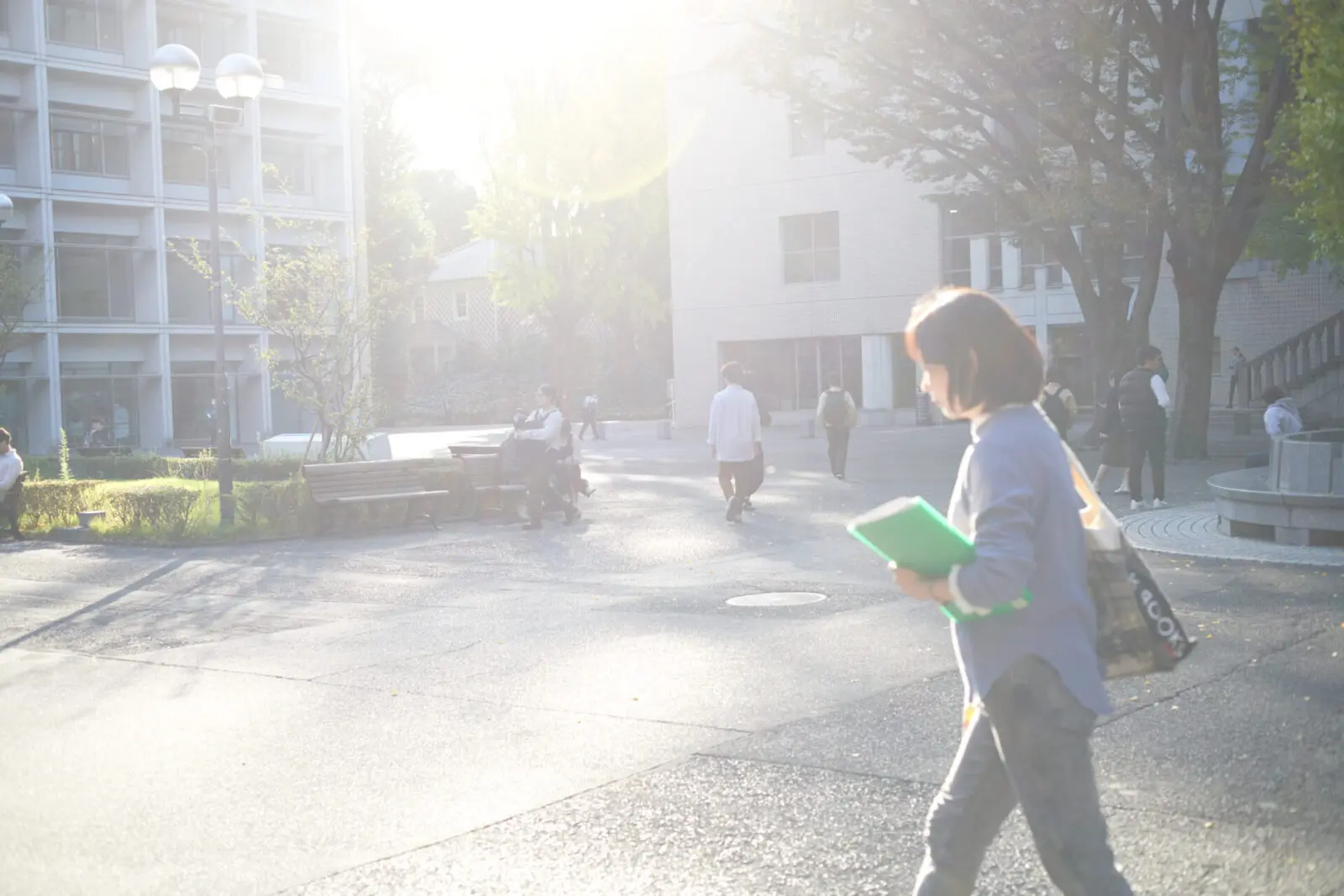
Keeping time open will change the terrain of the mind
── I also think that the time we spend enjoying new shikohin experiences exposes us to time in which we do not know the outcome, or open time.
I think there are two main ways in which shikohin influences our minds.
One is the healing that comes from ritualistic shikohin that I mentioned earlier. The other is as you mentioned, the stimulation that comes from irregular or unusual shikohin experiences. This is important for having a different effect on us.
I think both are important and we should use both separately, or in some cases combine them, in order to enjoy the positive effects of shikohin.
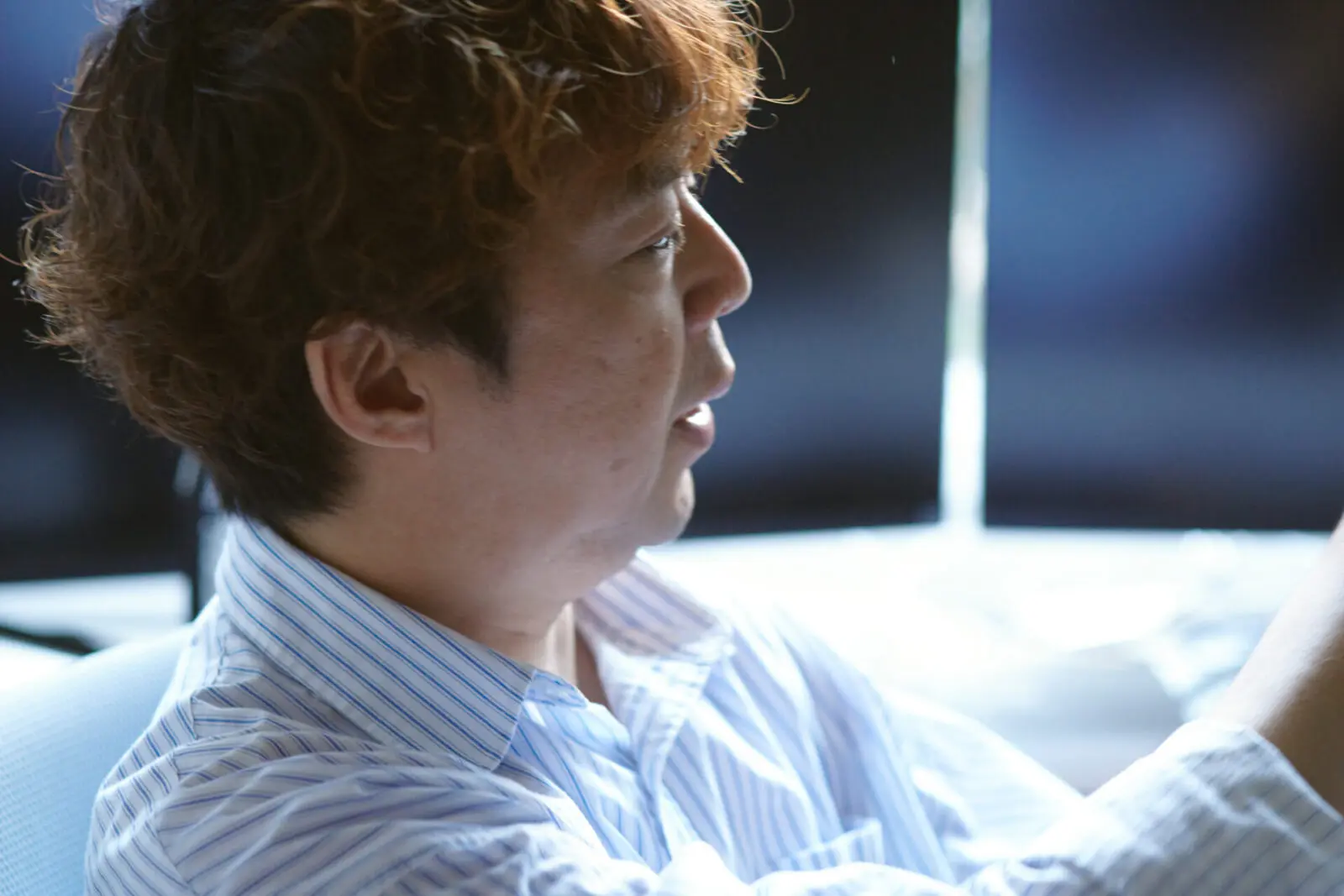
I think you can think of irregular shikohin experiences as things like going to a museum to appreciate art or going on a trip.
I believe such acts can be categorized as shikohin experiences and these experiences give us new stimulation.
This stimulation allows us to see a world we never knew of before or spend unpredictable “open time”, including the part where we do not know how we will react to it.
── Do you think it is important for us to occasionally experience new shikohin?
Experiencing something “new” is actually not so easy.
As I talked about before, we have a keen ability to categorize and generalize things. So even if we see a work of art for the first time, we often put it in a category by thinking it looks similar to something we have seen before.
That is why seeing something new is often not enough and we must maintain the stance of “open time” in order to achieve the true effects of new shikohin experiences.
In terms of Bergson’s aspect of time, (discussed in Part 1) it is important that we don’t make the time we spend enjoying art in the completed aspect of time.
── We must keep time open.
Yes. Every moment that we are alive, we are bombarded with information from the world.
However, our minds are not a simple collection of atoms and molecules. There are infinite variations in how and what information we receive and how that affects our minds.
It is not simply that there are countless branches growing out of a single tree. Rather, this concept of splitting branches has caused us to misinterpret the question of time.
I talked about uncompleted aspects and how there are multiple scales of time. Our time transforms dynamically while we improvise back and forth between the flow of time itself, taking a portion of it and turning it into a bigger time scale, and conversely receiving from it.
We always have a vast pool of memories inside us and they are repeatedly being combined and separated as they flow through our consciousness.
Because the time that shapes our mind is open, we can go back and forth inside it through tension and relaxation, or go up and down its multiple scales to create various types of output.
Just as water that flows out of a mountain becomes a river and eventually forms a new terrain, this inexhaustible movement will one day change the state of our minds.
The change in the terrain of our minds will change how we see the world.
That is why it is important to keep our minds and time open as we continue to live and form connections with our world.
